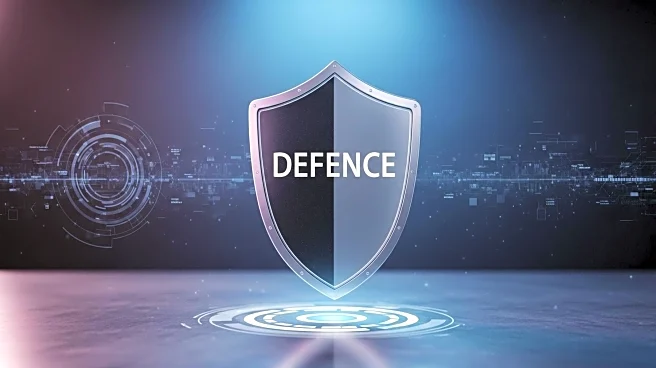What's Happening?
The Cybersecurity Maturity Model Certification (CMMC) program rule, effective December 16, 2024, is set to roll out in phases over four years. Phase 1 begins on November 10, 2025, allowing Level 1 or Level 2 self-assessments for applicable contracts. However, the Department of Defense (DOD) retains discretion to require Level 2 C3PAO certification instead of self-assessment. This discretion is based on the sensitivity of the Controlled Unclassified Information (CUI) handled under contracts. The misconception that there is a blanket 12-month grace period for self-assessment is not supported by policy, and contractors are advised to prepare for certification requirements sooner rather than later.
Why It's Important?
The CMMC program is crucial for enhancing cybersecurity within the defense industrial base, ensuring that sensitive information is protected. Misinterpreting the grace period could lead to lost contracts for small manufacturers and niche R&D shops if they fail to meet certification requirements early in Phase 1. Large primes like Lockheed, Raytheon, and Northrop may impose certification requirements on their suppliers to mitigate risks, emphasizing the need for readiness. The program aims to instill robust cybersecurity practices across the industry, with third-party validation serving as a critical component.
What's Next?
Contractors should engage with their customers and primes to understand how discretion will be applied to their programs. They are encouraged to model timelines realistically, considering implementation backlogs and assessment scheduling. Preparing for certification rather than relying on self-assessment will ensure compliance and maintain competitiveness. The DOD's approach reflects a shift towards more stringent cybersecurity measures, with program managers expected to use discretion based on data sensitivity.
Beyond the Headlines
The CMMC initiative represents a broader trend towards increased cybersecurity accountability in the defense sector. It highlights the importance of proactive measures and strategic planning to navigate evolving cybersecurity requirements. The emphasis on third-party validation underscores the industry's move away from self-assessment, aiming to build trust and resilience in handling sensitive information.










